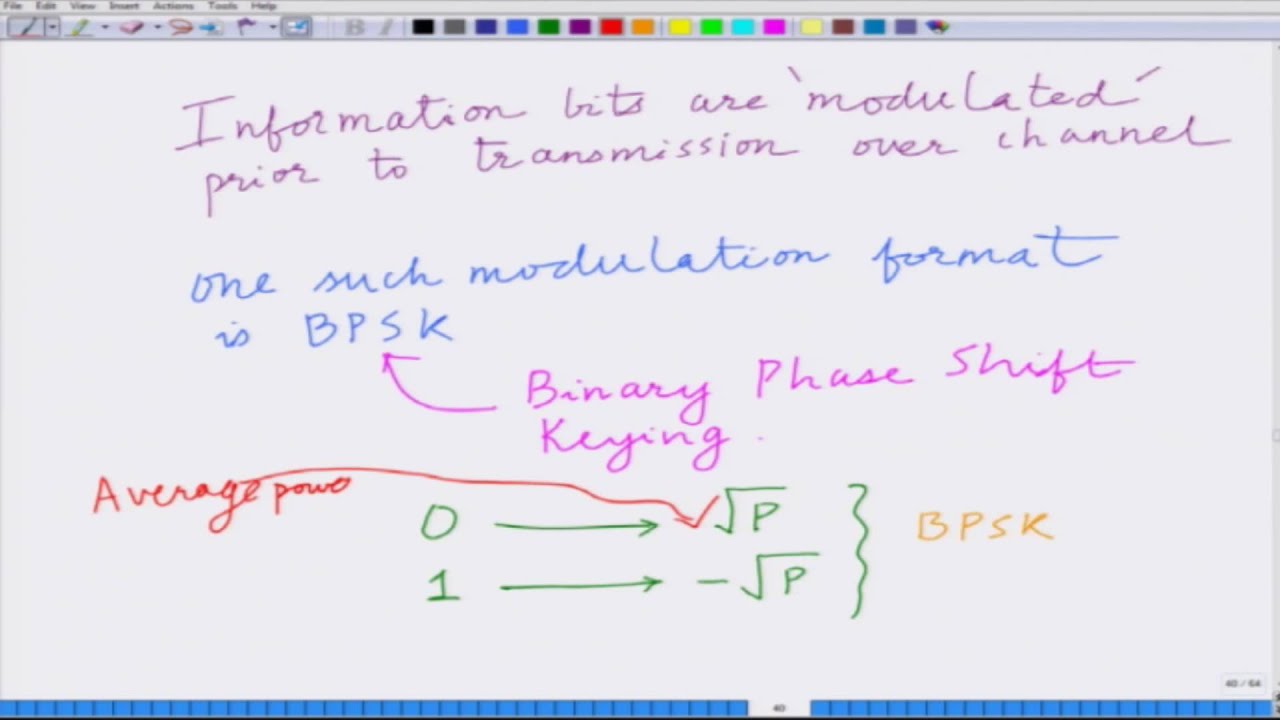Probability of bit error, it should be.
As BER?
If that so, then it is from 0 to 0.5.
I didn’t got this, what’s the source for this?
As the number system is binary here , so we have either 0 or 1. For our communication system we mostly assume it as BSC(Binary Symmetric Channel) which means probability of transmitting 0 and 1 is equal and equal to 0.5 (=1/2).
Assume we have to transmit 10(ten) bits all zeros and assume probability of bit error is 0.7, that means I will receive 7 1s and 3 zeros.
In that case , on the receiver we can decide to decode ones as zeros and zeros as ones, that way I will receive 7 zeros and 3 ones and in that case probability of bit error is 0.3.
So this is how probability of bit error is 0 to 0.5.
Just tried to use shorter explanation to convey the idea.
This is a very useful and helpful information.
Thanks a lot @pulkit !
I was confused, so, this how is BER does. 
In telecom ber goes from 0 to 1 not from 0 to 0.5 same for bler.
All 10 bits in your explanation are wrongly decoded so your ber is 1 not 0.3.
This description is for a general communication system where receiver knows about the nature of the channel.
But all bits could be wrongly decoded so ber goes up to 1 not up to 0.5.
Can you please explain why all bits are wrongly decoded?
Your explanation is just a particular case.
It does not cover the whole possibilities.
So that’s where the probabilistic nature comes into picture, probability of error = 0.7 tells that out of 10, 7 are in error, isn’t it?
SINR in 5G ranges from -23 dB to 40 dB.
You will never convince me that at SINR = -20 dB your ber could not go higher than 0.5.
I dont think you can even decode a bit with SINR = -20 dB.
I agree with your point, that 0.5 limit does not applies everywhere, that’s I mentioned it is for BSC and if receiver knows all about the nature of the channel. So it more of a theoretical concept.
But if we know BER is let say 0.7, then we can definitely say not all bits are in error.
That’s the meaning of probability.
So how come ber is just up to 0.5?
You have never seen a ber of 0.8?
In this scenario.
But we can’t ensure all these assumptions in practical cellular communication systems.
There’s too much theory.
We should stay close to real life situations.
And in real life ber goes from 0 to 1 not from 0 to 0.5.
But how can one understands real life situation without understanding theory? 
When people decide SoC they even consider 0.01 ber.
Where as Radio planner are even ok with 5~10% BER also.
